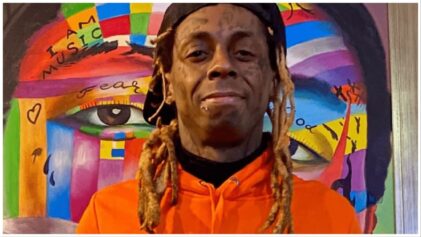About 40 miles south of Jackson, Mississippi’s state capital, just off Interstate 55, lies the town of Crystal Springs. Unless you need to fill up your car or your stomach, you almost certainly won’t leave the freeway to visit it.
Around 6,000 people live in there. Last year, the town briefly made headlines when members of the congregation at the First Baptist Church on East Cayuga Street refused to let their pastor marry a black couple. It used to call itself The Tomato Capital of the World. That gives you a bit of insight into the kind of place this is.
When he was in high school in the early 90s, Jason Thompson would get into his 1979 Chevy Impala and drive from his family’s house on Utica Road, which meanders outside the town limits past the cemetery. He’d end up at the gas station with his friends. They’d sit outside, late into the night, scanning the dial for hip-hop.
“We’d hang out–post up, is what we would call it–and listen to music,” Thompson says. “Real slow motion. We listened to a lot of east coast hip-hop: Nas, Rakim, KRS-One. That’s when Outkast was popping off, so we listened to that.”
The seeds planted by those gas station sessions are starting to pay off–both in Crystal Springs and elsewhere in the state. Something is happening in Mississippi. The small towns are starting to produce some of the coolest hip-hop music you’ll ever hear. Drawing on styles from both the east coast and the “dirty south,” Mississippi’s rappers seem to have an innate sense of musicality – an idea that the voice can be an instrument, not just a way to deliver a message.
For a long time, Mississippi was the forgotten cousin of the southern hip-hop family. The state didn’t have a Lil Wayne, or a Master P, or a Rick Ross or an Outkast. Its most recognizable artist was David Banner – no megastar, even if he was something of a trailblazer. All that is changing. Big K.R.I.T (from Meridian, population 40,000) has become one of hip-hop’s go-to talents, signing to Def Jam and working with everyone from the Roots and TI to BB King. Tito Lopez, from the state’s second largest city, Gulfport, first signed to Capitol Records, then headed out to Los Angeles to help Dr. Dre write for his Detox project.
There are countless others, Thompson among them. He’s now known as PyInfamous, and one listen to his music shows that all that posting up at the gas station paid off. With a pitch-perfect flow and a voice as dusty as Utica Road, he’s making some truly amazing hip-hop.
Here’s the really weird thing about these towns. It’s because they’re small, because there is so little to do and so little chance for traditional jobs (Mississippi has the lowest average household income in the US, at just under $37,000 a year) that hip-hop thrives. Poverty isn’t noble, and it should never, ever be celebrated, but what it does do is create the perfect conditions for hip-hop to explode.
Read more: TheGuardian


